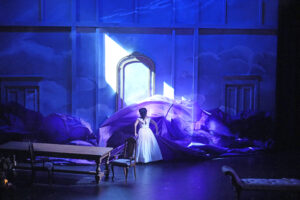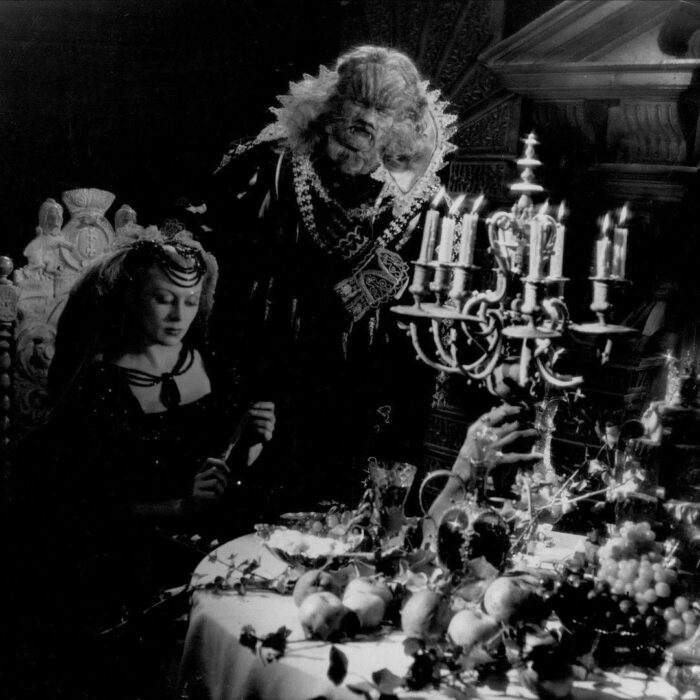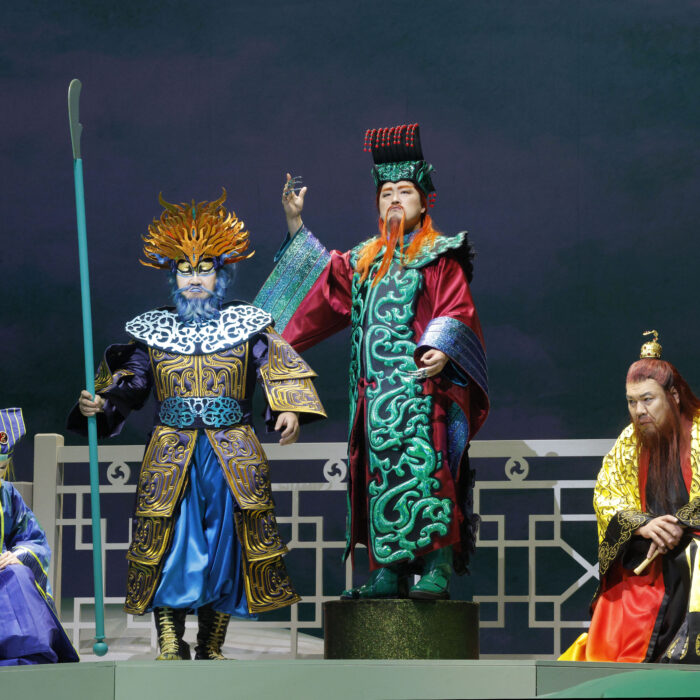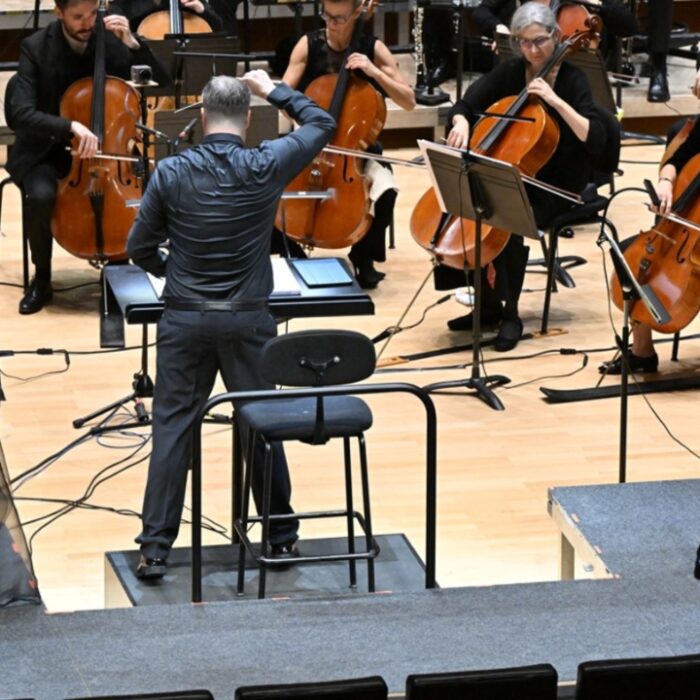
Berkshire Opera Festival 2025 Review: La Traviata
Production of Verdi’s Masterpiece at the Mahaiwe Performing Arts Center Marks Unforgettable Ending to a Special Summer Festival Season
By Matt Costello(Credit: Ken Howard)
Though I think most in the Northeast, where I live, look forward to the coming colors and crispness of fall…still, the fading of summer is always bittersweet. For me, regularly covering the major opera festivals that are part of summer in this part of the world, the last opera of the season is always special.
And for years now, that has usually been a performance by the always-remarkable Berkshire Opera Festival (BOF).
To be honest, I am not sure how they do it. BOF is a small company, with its 10-year-old festival focusing on a single work, presented in a jewel of a theater in Great Barrington, Massachusetts—the classic Mahaiwe Performing Arts Center.
A theatre with perfect acoustics, excellent sightlines, reminding one of the more intimate and dazzling opera houses of Europe. But there is an additional magic that happens here. And perhaps, even more than just one bit of wizardry.
Primary is that—consistently—the artistic director, Brian Garman, and the team working with him, seem to find singers who are not yet widely known but soon will be. Some examples from past productions include Jonathan Tetelman (who sang the Duke of Mantua from “Rigoletto” a few years back), Sebastian Catana, who gave us a delightfully irrepressible Sir John Falstaff in Verdi’s last work, and–from last year’s ‘”Faust”–the sly and seductive Justin Hopkins as Méphistophélès.
Knowing that a discovery like this is probably in store is, for me, part of the anticipation of attending a performance with the company.
But that is not to ignore some other BOF hallmarks. Starting with the crisp and vibrant stage direction, always making sure that the drama is as powerful as it can be. Likewise, the orchestra is conducted with a careful attention to making details of even familiar pieces ‘pop’ in such a way that it makes the whole experience seem fresh and exciting.
This year, Verdi’s great mid-period masterpiece, “La Traviata,” offered the festival the opportunity to employ all the strengths it possesses. The opening chorus at Violetta’s party plunged the audience into the middle of the revelry—a thrilling force to hear in the great acoustics of the theater. The ensemble’s acting made the moment seem as if one was seeing paintings of the period, with, of course, much imbibing and carousing spring to thrilling life.
It was totally delightful.
And, as might be expected of BOF, the leads were all excellent.
Soprano Vanessa Becerra as Violetta proved to be a searing and plaintive courtesan, with a powerful voice to match the demands of the role. From moments such as Violetta’s giddy declaration of her independence, “Sempre Libre,” to the emotionally overwhelming “Dammi tu forza, o cielo.” Becerra was enthralling.
Likewise, the soprano’s acting in the role, with its multi-layered emotion, was tremendously moving.
She was matched with the ringing tenor of Joshua Blue as Alfredo Germont. The role of Alfredo, nuanced for opera of the period, requires passion and sensitivity, and it was perfectly essayed by Blue in moments such as the champagne toasts of “Brindisi” to the powerful “Un di, felice, eterea,” showing just how his love for Violetta was total.
Again, his singing made the familiar set pieces fresh and exciting, especially as Blue also navigated the difficult emotions as Violetta tries to secretly follow Alfredo’s own father’s wishes—and leave him.
Giorgio Germont was performed with a rich baritone and believable gravitas by Weston Hurt. That role of the man out to end this relationship and free his son could easily seem unsympathetic. But Hurt navigated the balance of love, empathy, and a father’s concern, shining brightly in such moments as the aria “Di Provenza il mar, il suol,” sung with touching emotional force.
Gabriele Baldini, in his classic Verdi book, “The Story of Giuseppe Verdi: Oberto to Un ballo in Maschera,” discussed the dramatic dynamic demonstrated by the three leads in this production.
Baldini, while considering Verdi and his librettists, postulated that for Verdi, the story was always about the dramatic intersection of those three voices—the tenor and soprano joined in their love, with the baritone often acting as an impediment. And that specific dynamic was certainly palpable with the soaring voices in this BOF production, the musical drama electric.
The acting, as directed, made the story as fully developed as the dramatic and emotional singing. Credit for this goes to the director and BOF co-founder, Jonathan Loy. In synch with the conducting of the company’s other co-founder, Brian Garman, the music and story were of a single, artistic piece.
Clearly, the pair of founders appears to have a very special touch when it comes to mounting the true classics of the repertoire.
Set designer Hannah Postlethwaite and costume designer Brooke Stanton served the drama perfectly. The costumes captured the era and the world of Violetta to a stunning degree, while the sets were a consistently clever solution to presenting both the grand party sequences and the intimate settings of the home Alfredo and Violetta share.
The supporting cast was uniformly excellent, with particularly stand-out performances by Maximillian Jansen as the Viscount and the dignified Baron of Yazid Grey. Mezzo-soprano Erin Reppenhagen’s performance as Violetta’s good friend was delivered with care and concern.
The authentic flamenco of Act two was a special treat, excitingly staged on the tables at Flora’s party, and adding another layer of authenticity and immersion as well as the sheer thrill of the dancing.
There’s one thing that I especially enjoy about all of Verdi’s works, and certainly when it comes to the three mid-century masterpieces such as “La Traviata,” “Il Trovatore,” and “Rigoletto”…and that is the amount of remarkable trios and quartets Verdi summons in his scores.
And when you have a cast capable of shooting off as many sparks as this one, those special moments had me on the edge of my seat. Almost to the point where I wish we could—throwback to a long time ago—shout ‘bis’…clamoring for a repeat of the wonder we had just heard.
One powerful example was when Violetta is fading, growing ever weaker… and Giorgio Germont shows up, repentant. The beauty of this scene, “Prendi, queste l’immagine,” mixed with the very human portrayal of Violetta’s final moments, was gripping. Forgetting the sheer goosebumps, it made me (and many, I am sure) tear up.
And I have not felt this at an opera in quite a while.
All the ensembles were very well-crafted and dramatic. One particular standout moment was the closing scene of Act two, with the partiers shocked and overwhelming reaction to Alfredo’s tossing money at the emotionally crushed Violetta.
It was about as gripping as any moment I’ve seen at an opera.
Overall, this “Traviata” was—quite simply—a wonder.
And with next year’s program already announced, including Donizetti’s “Lucia di Lammermoor,” I can’t wait for the next summer of festivals, especially the Berkshire Opera Festival, to return.


